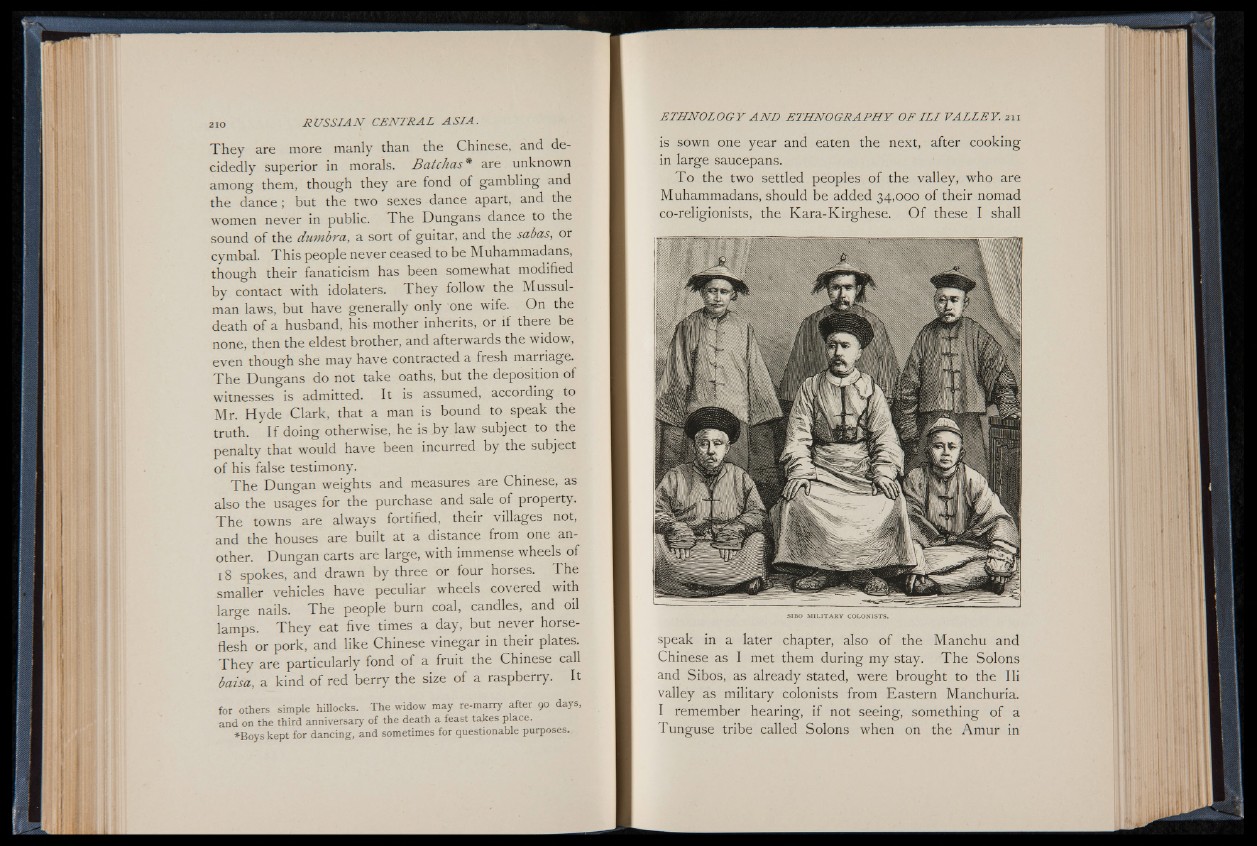
They are more manly than the Chinese, and decidedly
superior in morals. Batchas * are unknown
among them, though they are fond of gambling and
the dance; but the two sexes dance apart, and the
women never in public. The Dungans dance to the
sound of the dumbra, a sort of guitar, and the sabas, or
cymbal. This people never ceased to be Muhammadans,
though their fanaticism has been somewhat modified
by contact with idolaters. They follow the Mussulman
laws, but have generally only one wife. On the
death of a husband, his mother inherits, or if there be
none, then the eldest brother, and afterwards the widow,
even though she may have contracted a fresh marriage.
The Dungans do not take oaths, but the deposition of
witnesses is admitted. It is assumed, according to
Mr. Hyde Clark, that a man is bound to speak the
truth. I f doing otherwise, he is by law subject to the
penalty that would have been incurred by the subject
of his false testimony.
The Dungan weights and measures are Chinese, as
also the usages for the purchase and sale of property.
The towns are always fortified, their villages not,
and the houses are built at a distance from one another.
Dungan carts are large, with immense wheels of
18 spokes, and drawn by three or four horses. The
smaller vehicles have peculiar wheels covered with
large nails. The people burn coal, candles, and oil
lamps. They eat five times a day, but never horseflesh
or pork, and like Chinese vinegar in their plates.
They are particularly fond of a fruit the Chinese call
baisa, a kind of red berry the size of a raspberry. It
for others simple hillocks. The widow may re-marry after 90 days,
and on the third anniversary of the death a feast takes place.
*Boys kept for dancing, and sometimes for questionable purposes.
is sown one year and eaten the next, after cooking
in large saucepans.
T o the two settled peoples of the valley, who are
Muhammadans, should be added 34,000 of their nomad
co-religionists, the Kara-Kirghese. O f these I shall
SIBO MILITARY COLONISTS.
speak in a later chapter, also of the Manchu and
Chinese as I met them during my stay. The Solons
and Sibos, as already stated, were brought to the Ili
valley as military colonists from Eastern Manchuria.
I remember hearing, if not seeing, something of a
Tunguse tribe called Solons when on the Amur in